
R. Lor Randall, MD, FACS, discusses findings from a study of one-stage synovectomy in patients with diffuse-type tenosynovial giant cell tumor of the knee.

Your AI-Trained Oncology Knowledge Connection!


R. Lor Randall, MD, FACS, discusses findings from a study of one-stage synovectomy in patients with diffuse-type tenosynovial giant cell tumor of the knee.
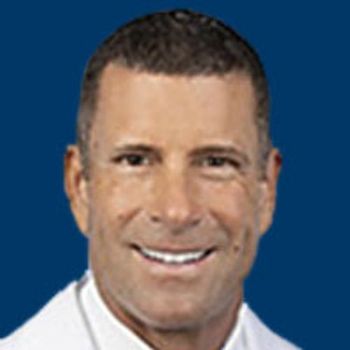
R. Lor Randall, MD, FACS, discusses the standard treatment approach for patients with diffuse-type tenosynovial giant cell tumor, the results of the retrospective cohort study evaluating 1- vs 2-stage synovectomies in these patients, and the importance of having additional treatment options for this patient population.
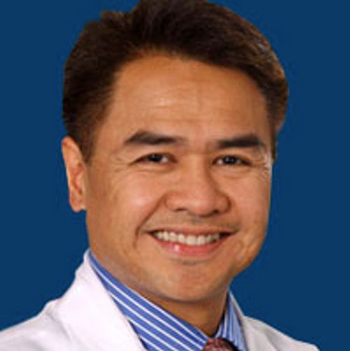
New study led by UC Davis Comprehensive Cancer Center could improve outcomes for common cancer found in 1 in 8 men.
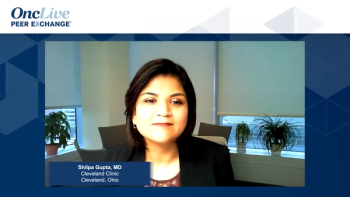
Closing out their discussion on urothelial carcinoma, key opinion leaders share clinical pearls and excitement for the evolving treatment landscape.
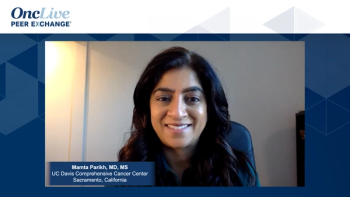
A brief review of second-line and subsequent treatment strategies in metastatic urothelial carcinoma and novel therapies being explored in this space.
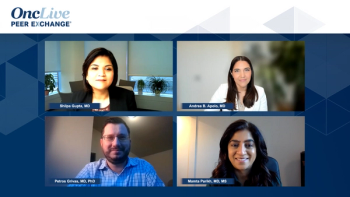
Shared insight on clinical trial data behind the intensification of maintenance immunotherapy in patients with metastatic urothelial carcinoma.
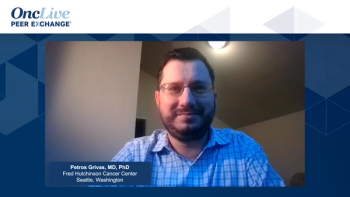
Centering discussion on several key clinical trials, expert panelists reflect on data behind maintenance avelumab in metastatic urothelial carcinoma.

A panel of four key opinion leaders discuss the role of maintenance therapy in metastatic urothelial carcinoma and how its use has impacted the treatment landscape.

A brief review of the appropriate number of chemotherapy cycles to utilize in the setting of metastatic urothelial carcinoma.

Switching their focus to the metastatic urothelial carcinoma treatment landscape, panelists identify cornerstone frontline treatment options.

A comprehensive review of novel treatment strategies in MIBC, including perioperative therapy, and respective ongoing clinical trials.

Expert panelists reflect on the molecular subtyping of patients to predict response to neoadjuvant therapy in Bladder BRIDGister.

Shared insight on the combination of gemcitabine, cisplatin, and nivolumab in patients with muscle-invasive bladder cancer in the HCRN GU 16-257 trial.

April is Head and Neck Cancer Awareness Month, and a promising new research initiative at UC Davis Comprehensive Cancer Center could lead to a new and far more effective standard of care for this group of cancers.

R. Lor Randall, MD, FACS, discusses the investigation of ganitumab plus standard-of-care interval-compressed chemotherapy in a phase 3 trial for newly diagnosed metastatic Ewing sarcoma.

Focused discussion on the RETAIN BLADDER study, which explored the option to avoid cystectomy in patients with good response to systemic therapy.

Continuing their discussion on adjuvant therapy in in muscle-invasive bladder cancer, panelists identify the utility of minimal residual disease testing.
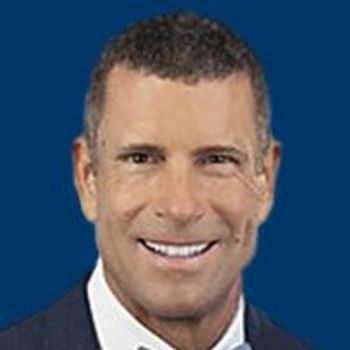
R. Lor Randall, MD, FACS, expands on data from a phase 3 trial evaluating the addition of ganitumab to standard-of-care, interval-compressed chemotherapy, the implications of these results, and how the study could help inform future trials exploring other targeted therapies for the treatment of patients with metastatic Ewing sarcoma.

Centering discussion on several clinical trials, key opinion leaders reflect on the role of adjuvant therapy in muscle-invasive bladder cancer.

Expert perspectives on the evolving role of neoadjuvant therapy in muscle-invasive bladder cancer (MIBC) with considerations for mainstay regimens.

Switching their focus to non-muscle-invasive bladder cancer (NMIBC), panelists identify the treatment armamentarium in this setting.

A bird’s eye view of treatment modalities in urothelial carcinoma covering systemic, surgical, and bladder preserving strategies.
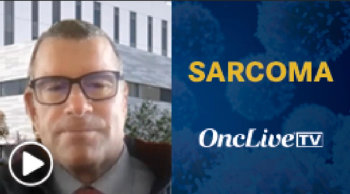
R. Lor Randall, MD, FACS, discusses the potential symptoms and presentation of mesenchymal chondrosarcoma, as well as highlighted recent case studies that he consulted on for patients with mesenchymal chondrosarcoma.

A brief review of sequencing patterns in urothelial carcinoma and the typical number of lines of therapy a patient may receive.

A panel of four key opinion leaders share real-world urothelial carcinoma practice patterns at their respective institutions.
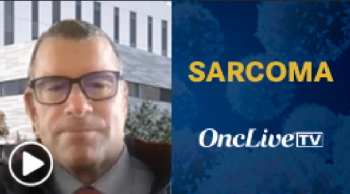
R. Lor Randall, MD, FACS, discusses, the importance of correctly diagnosing mesenchymal chondrosarcoma.
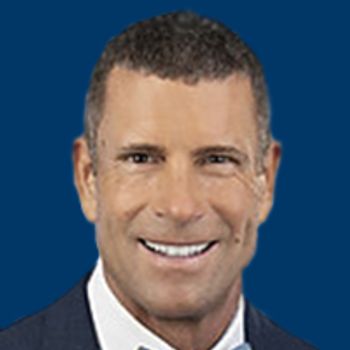
R. Lor Randall, MD, FACS, discusses the presentation and diagnosis of mesenchymal chondrosarcomas, the role of HEY1-NCoA2 gene fusions in the disease, and potential treatment options for this rare subgroup of patients.

R. Lor Randall, MD, FACS, discusses how sarcoma experts from around the world connected to collaborate on the ISKS, the importance of identifying and better understanding sarcoma subgroups, and how these findings could inform prescreening for those at risk for the disease.
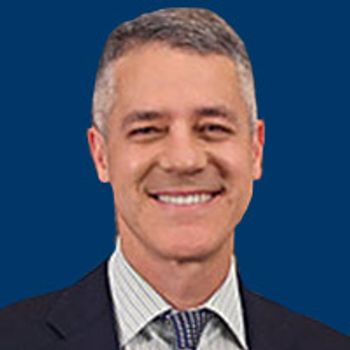
New UC Davis study finds relationship between tumor microbiome and immune system in patients with soft tissue sarcoma.

Research conducted by UC Davis Comprehensive Cancer Center and the University of Cincinnati shows that direct oral anti-coagulant drugs are more effective and are more cost-effective than low molecular weight heparin for treating cancer-associated thrombosis.